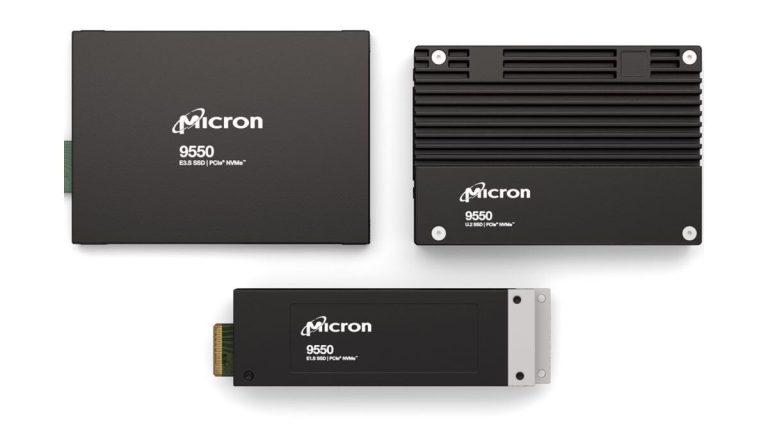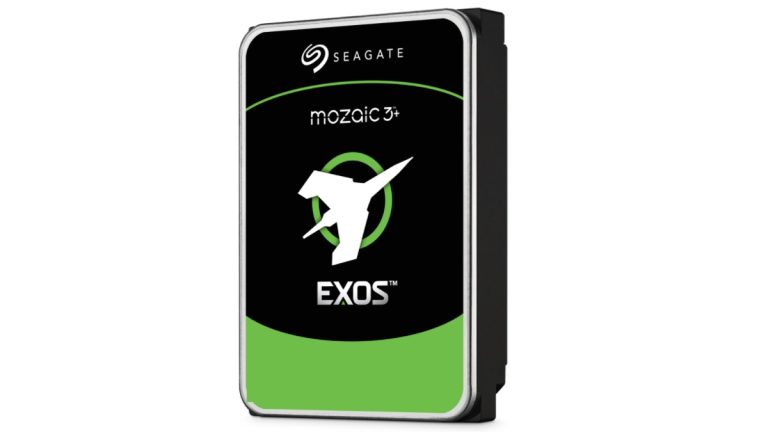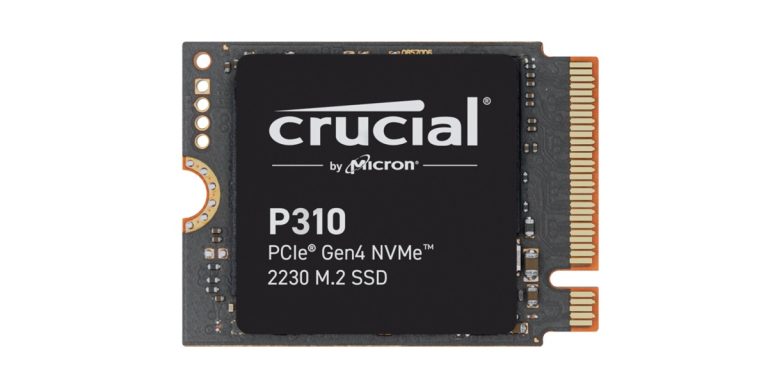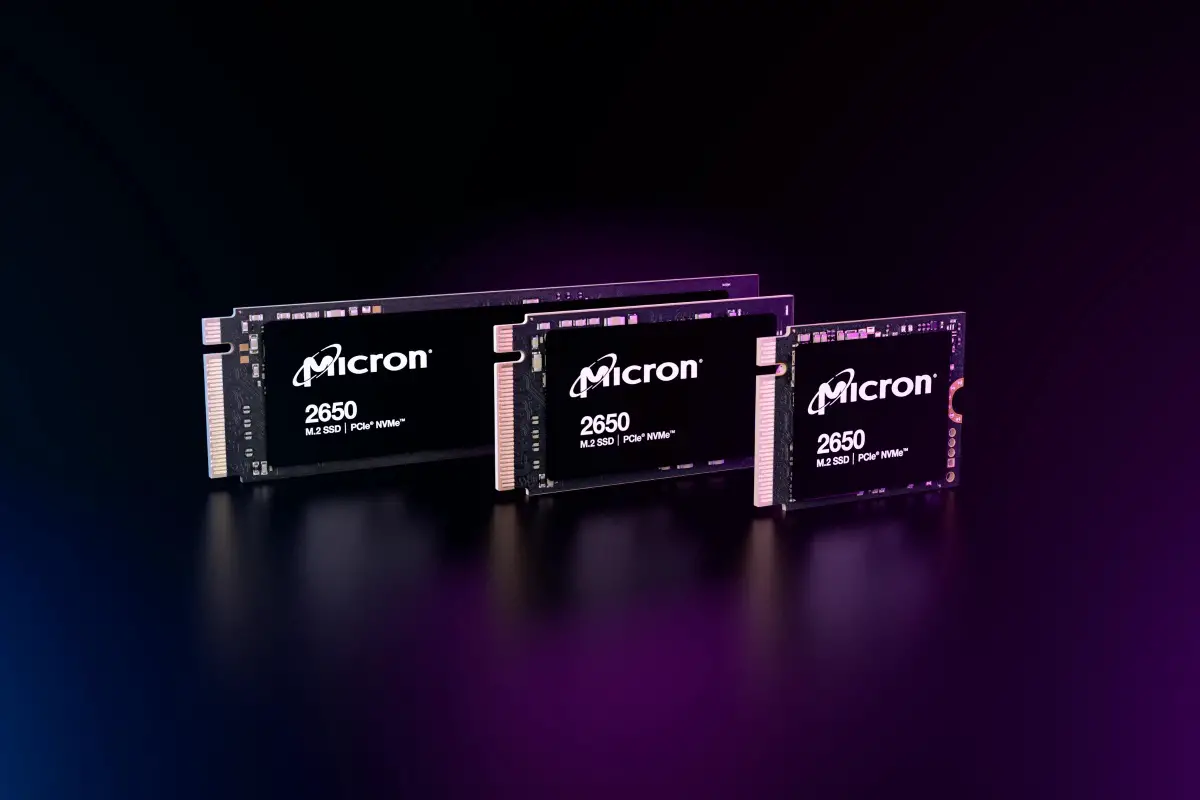
Micron has announced that its SSD products utilizing the ninth-generation (G9) 3D TLC NAND flash technology have begun shipping, making it the first in the industry to achieve this milestone. With 276 layers and data transfer rates of up to 3.6 GB/s, this technology provides exceptional NAND input/output (I/O) rates, catering to the high throughput demands of artificial intelligence (AI) and other data-intensive applications. This translates to outstanding performance suitable for personal devices, edge servers, enterprise, and cloud data centers.
Scott DeBoer, Executive Vice President of Technology and Products at Micron, stated, that the mass production of Micron’s G9 NAND technology underscores our prowess in process technology and design innovation, delivering market-leading density and enabling more compact, efficient storage solutions, thus offering significant benefits to both consumers and enterprises.
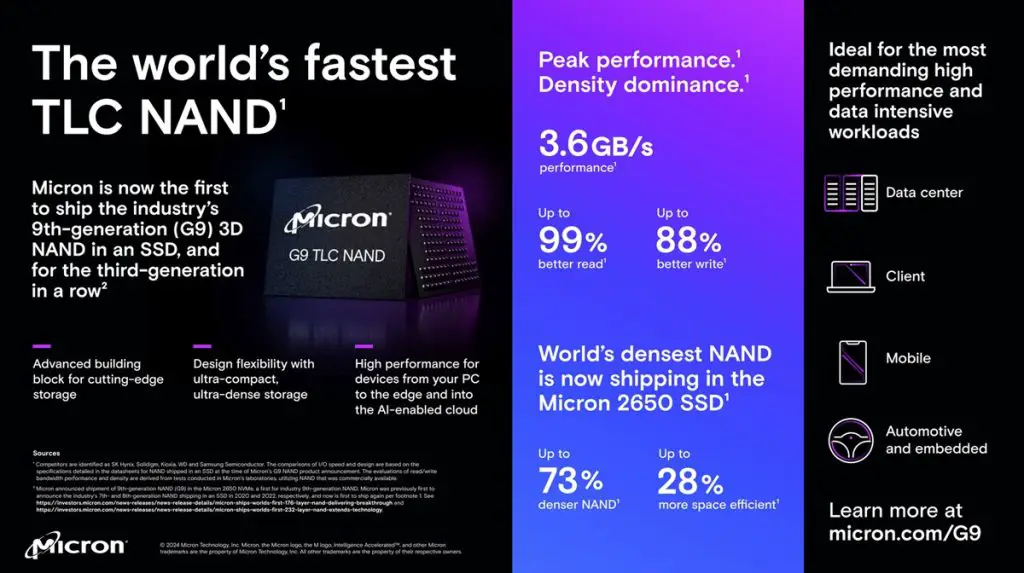
Compared to existing NAND solutions in the market, the G9 NAND exhibits a 99% increase in write bandwidth per chip and an 88% increase in read bandwidth, collectively enhancing the performance and efficiency of SSD and embedded NAND solutions. The G9 NAND, similar to its predecessor, employs a compact 11.5mm x 13.5mm package, saving 28% more space than comparable products, exemplifying superior small-size, high-density NAND flash design. Micron has achieved higher density within a smaller footprint, maximizing design options for a variety of use cases.
Micron also introduced the 2650 series SSD products, integrating next-generation 3D TLC NAND flash technology. These SSDs feature a single-sided chip design, support PCIe 4.0×4 interface, and are available in three form factors: M.2 2230, 2242, and 2280. They boast maximum sequential read and write speeds of 7000 MB/s and 6000 MB/s, respectively, with peak 4K random read/write speeds of 1M IOPS, offering capacities of 256GB, 512GB, and 1TB, with corresponding TBW ratings of 200TB, 300TB, and 600TB.
Micron claims that, compared to similar competitive products, the 2650 series SSDs exhibit a 70% improvement in sequential read performance, a 103% enhancement in sequential write performance, a 156% boost in random read performance, and an 85% increase in random write performance. In addition to targeting the client OEM market, the G9 NAND will also be utilized in client components and Crucial’s consumer SSD products.
